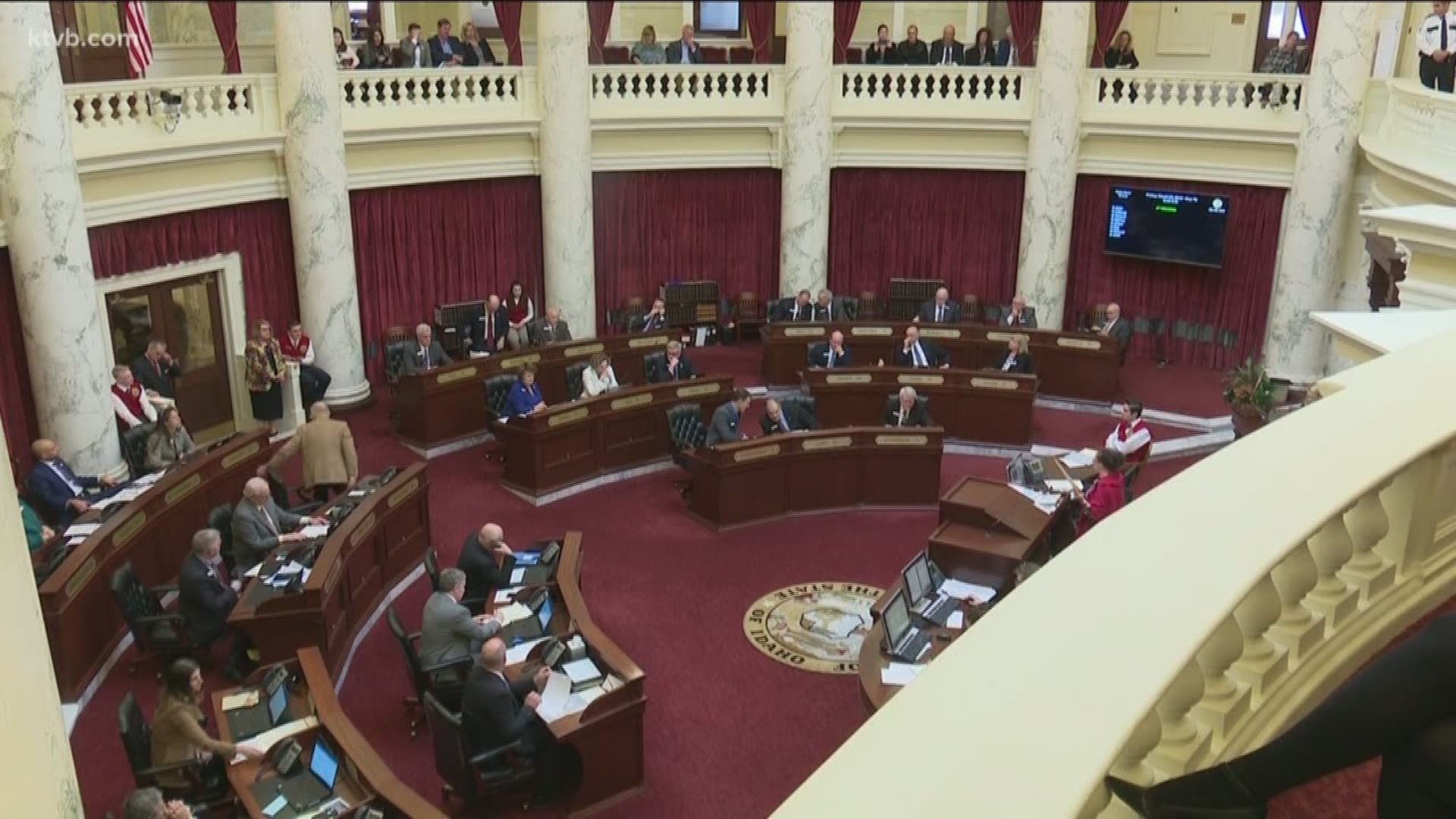BOISE, Idaho — The Senate on Friday narrowly passed legislation that would dramatically toughen the requirements to get an initiative or referendum on the Idaho ballot.
Senators voted 18-17 after a lengthy debate to send the House the bill put forward by Republican Sen. Scott Grow that has become some of the most contentious legislation of the session.
Grow claims the current system allows urban counties to have too much sway in voter initiatives and his bill will give rural counties a bigger voice.
The bill would require those seeking ballot initiatives to get signatures from 10 percent of voters in 32 of Idaho's 35 districts, compared to current rules that require signatures from 6 percent of voters in 18 districts. The bill would also cut the time allowed to gather the signatures from 18 months to about six months.
Another requirement says ballot initiatives must contain a fiscal note of the expected cost of the proposed law.
Those in favor say, in part, that the change is needed to allow rural areas to have an equal voice in the initiative process, and that ballots don't get overrun with initiatives.
"We're trying to ensure that it's not just a small group of folks who can get this on the ballot," Grow told senators. "It's not broken here but it is something we're looking to the future because we don't wait for a problem and then try to fix it."
Those opposed say the changes will make the Idaho initiative process impossible — except for big-money special interest groups — violate Idaho's constitution and remove a method voters have to take action if lawmakers fail to act.
"It's a little injection of a little direct democracy to check us, and that's a good thing," said Democratic Sen. Grant Burgoyne, who opposed the bill.
Generally, the bill is considered a reaction by some lawmakers to Medicaid expansion passed by voters in November with 61 percent of the vote following years of inaction by the Idaho legislature. The federal government would pay 90 percent of the cost, but Idaho still has to come up with $20 million and lawmakers have been fighting over how to do that.
Republican Sen. Chuck Winder, who voted for the measure, cited the Medicaid expansion initiative in his argument and said he wasn't surprised after six years of inaction by lawmakers that voters acted. Still, he said, that wasn't necessarily a good thing.
"I would submit to you that this is about money," he said, "and the people have found a way to vote themselves into the treasury."
Other senators supporting the legislation cited similar concerns that voters could approve ballot measures with no idea how to pay for the resulting laws, and sometimes signed petitions for ballot measures without fully understanding what they were signing.
"We need to make sure that people understand what their decision is based on," said Republican Sen. Mary Souza, who supported the bill.
"So if there is a large increase caused by an initiative, do we raise taxes, do we take away from education or from other departments, there is a tradeoff," Grow said.
Another argument for the legislation was that the digital era made it easier to get initiatives on the ballot, though there were only two on the ballot in November.
Republican Sen. Lori Den Hartog said she struggled with the legislation but decided she couldn't support the measure because it created too many obstacles.
"The combination of all the things we have included is just going too far," she said.
Some senators said that cutting the length of time to collect signatures meant less participation by voters, not more as Grow argued.
Democratic Sen. Maryanne Jordan, who opposed the measure, said it was already tough enough to get an initiative on the ballot.
"I don't see the need to make it even more difficult for citizens to engage," she said.
"This would make it impossible for a true grassroots effort to exist in Idaho and opens the door only for paid big money groups in order to meet those guidelines," Rebecca Schroeder, the executive director of Reclaim Idaho, the organization that led the initiative to get Medicaid expansion on the ballot.
Grow encouraged senators to support the bill he said is needed so that lawmakers could govern the state in a fiscally sound and socially responsible way.
"We're trying to maintain our responsibility and constitutional duty," he told fellow senators.
The bill now heads to the House for consideration.

